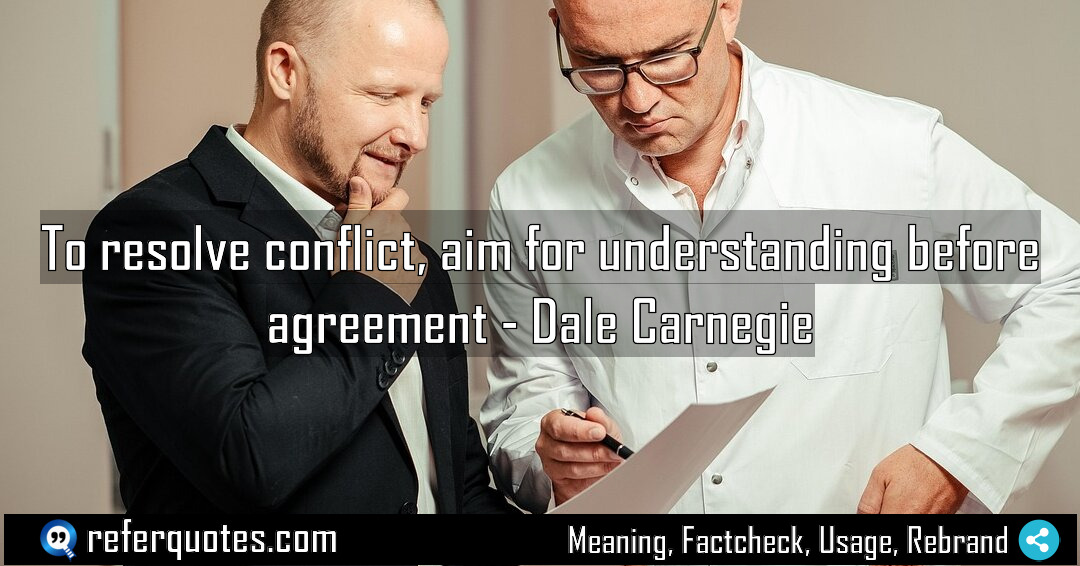You know, I’ve seen so many conflicts derail because people jump straight to solutions. “To resolve conflict, aim for understanding before agreement” is the secret. It flips the script entirely. It’s not about winning, it’s about listening to win the relationship.
Share Image Quote:Table of Contents
Meaning
The core message is simple but profound: Seek first to see the situation through the other person’s eyes. Only then can you even begin to find a real, lasting solution.
Explanation
Let me break this down for you. Most of us, when a disagreement pops up, we go straight into debate mode. We’re loading our next argument while the other person is talking. Our goal is to be right. But this principle? It forces a complete shift in mindset. You’re not trying to agree with them. Not at all. You’re trying to understand their perspective, their fears, their “why.” And here’s the magic part—when people feel genuinely heard, their defenses come down. The conflict instantly de-escalates. Suddenly, you’re not adversaries anymore; you’re two people trying to solve a shared puzzle. The agreement, when it comes, is almost a byproduct of that deeper understanding.
Quote Summary
| Context | Attributes |
|---|---|
| Original Language | English (3668) |
| Category | Relationship (329) |
| Topics | conflict resolution (3), patience (51), understanding (119) |
| Literary Style | clear (348), direct (414) |
| Emotion / Mood | calm (491), strategic (66) |
| Overall Quote Score | 84 (319) |
Origin & Factcheck
This comes straight from the playbook of Dale Carnegie Training, featured in their 2009 book “The 5 Essential People Skills.” It’s a modern distillation of the core Carnegie principles from the USA. People often misattribute quotes like this to Carnegie himself or to Stephen Covey, who had a similar “Seek First to Understand” habit, but this specific phrasing is from the official training organization carrying his legacy forward.
Attribution Summary
| Context | Attributes |
|---|---|
| Author | Dale Carnegie (408) |
| Source Type | Book (4032) |
| Source/Book Name | The 5 Essential People Skills: How to Assert Yourself, Listen to Others, and Resolve Conflicts (71) |
| Origin Timeperiod | 21st Century (1892) |
| Original Language | English (3668) |
| Authenticity | Verified (4032) |
Author Bio
Dale Carnegie(1888), an American writer received worldwide recognition for his influential books on relationship, leadership, and public speaking. His books and courses focus on human relations, and self confidence as the foundation for success. Among his timeless classics, the Dale Carnegie book list includes How to Win Friends and Influence People is the most influential which inspires millions even today for professional growth.
Official Website |Facebook | X | Instagram | YouTube |
Where is this quotation located?
| Quotation | To resolve conflict, aim for understanding before agreement |
| Book Details | Publication Year/Date: 2008 ISBN/Unique Identifier: 9781416595489 (ISBN-13), 1416595487 (ISBN-10) Last edition. Number of pages: Common reprints ~256 pages |
| Where is it? | Chapter: Steps Toward Resolution, Approximate page from 2009 edition |
